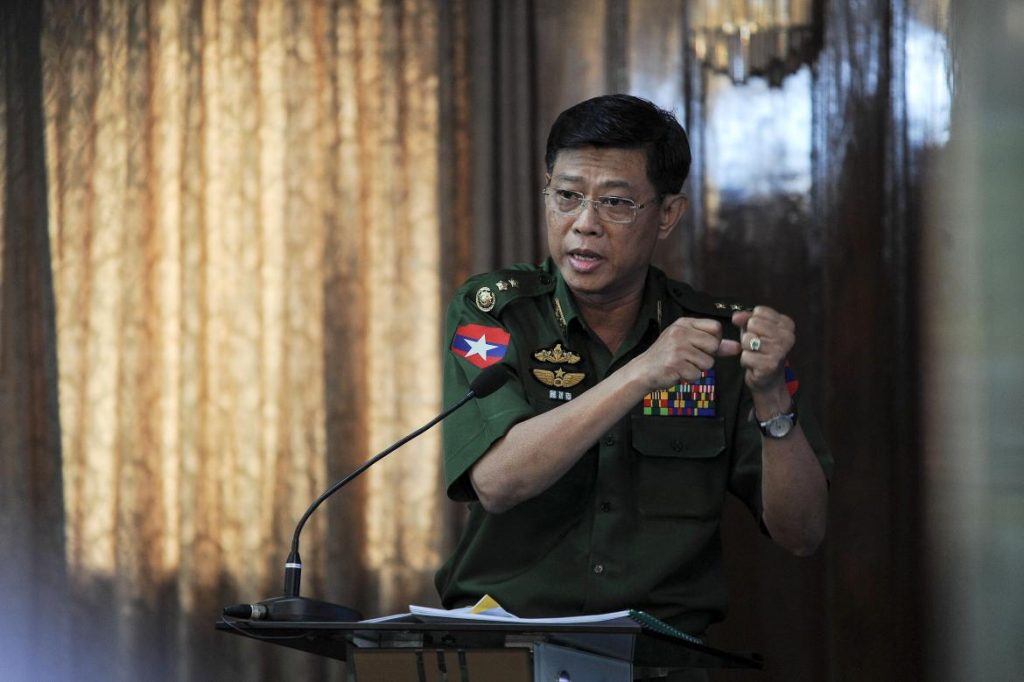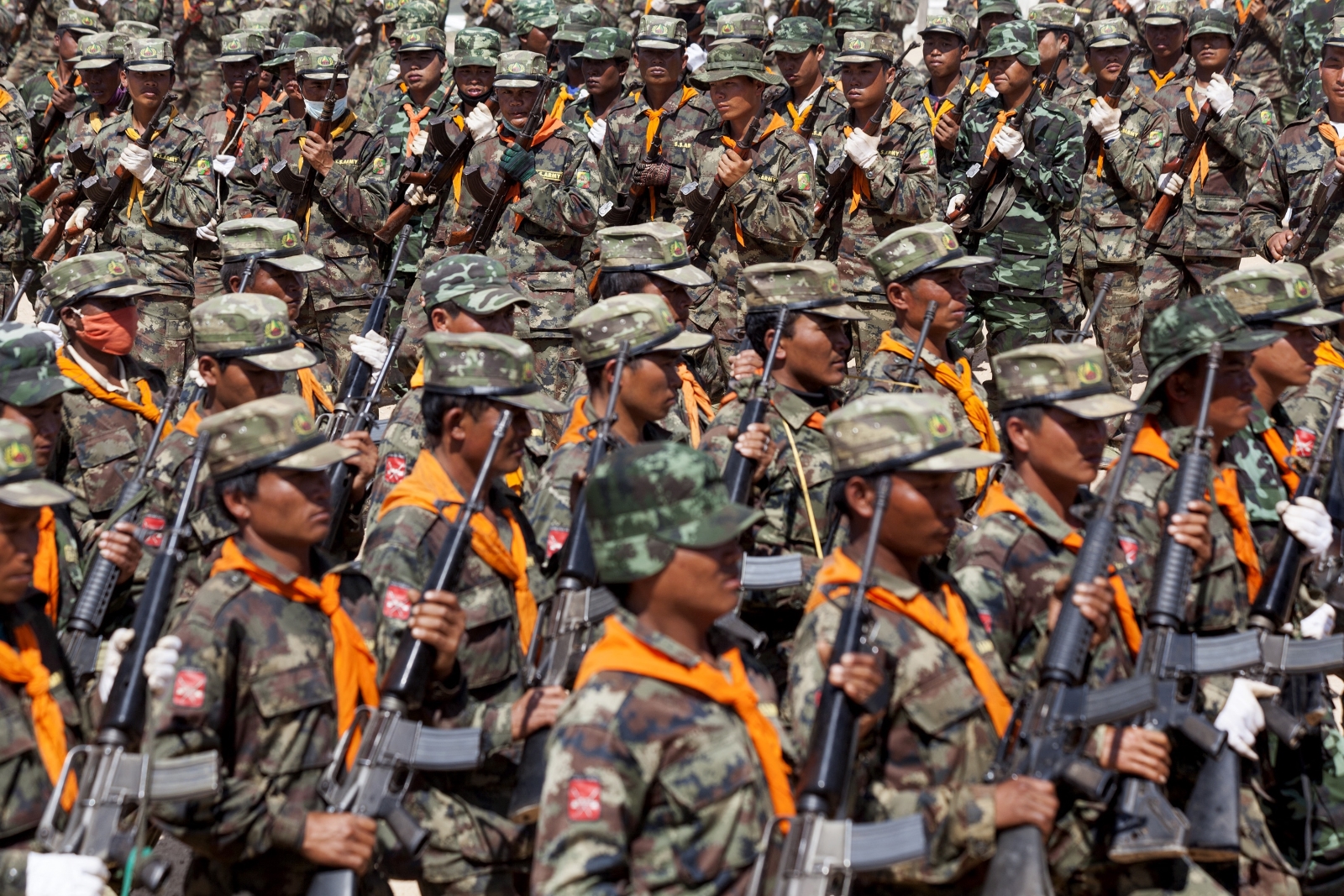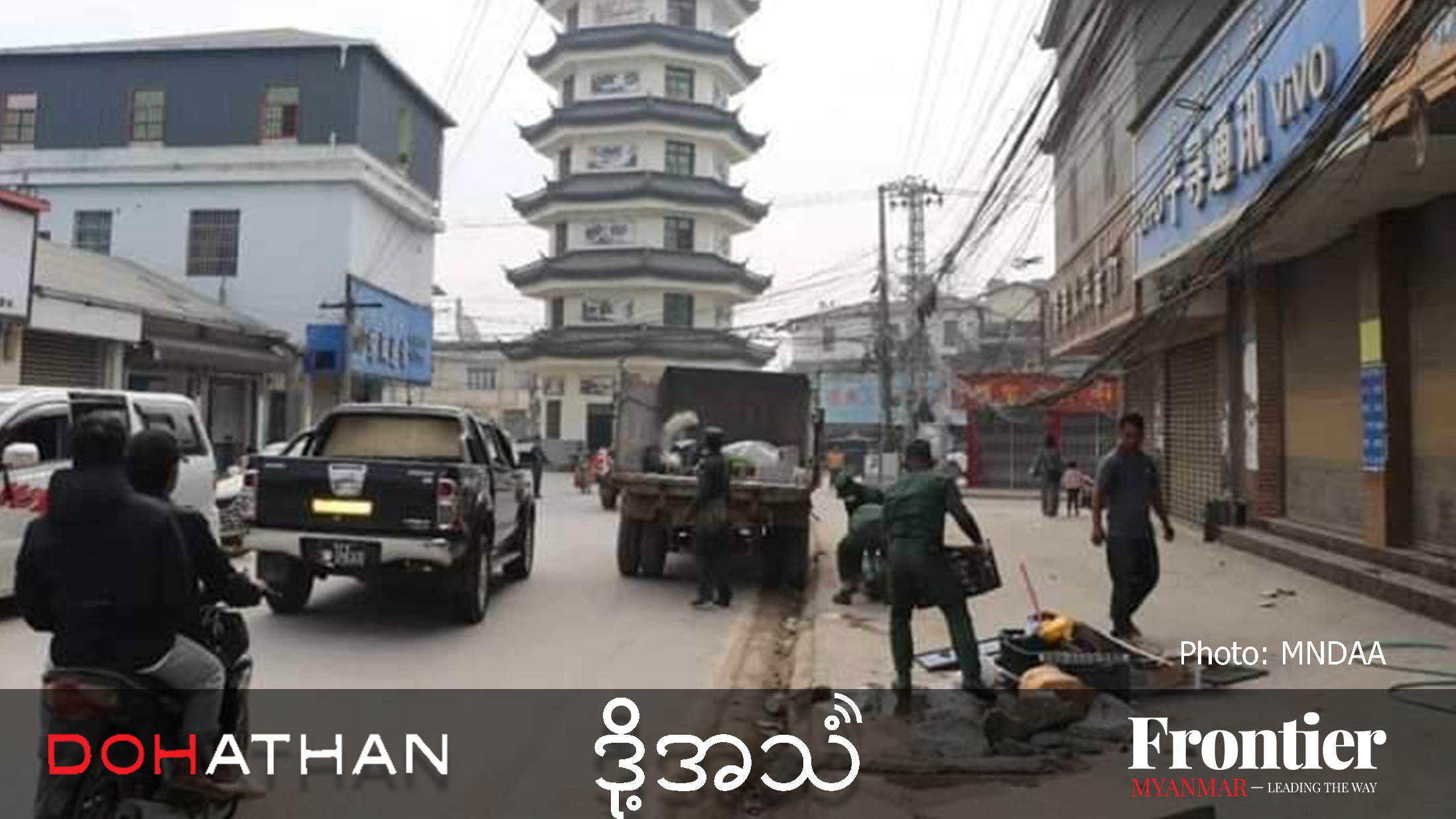Seven soldiers on trial for murder at an unprecedented court martial have admitted being involved in the killing of five unarmed villagers, witnesses at a hearing in the case told journalists last week.
The seven are being tried at Lashio in Shan State over the deaths of the five men, whose bodies were found in a shallow grave near remote Mong Yaw village a few days after being detained by soldiers on June 25.
In what Reuters newsagency described as a “highly unusual move”, the Tatmadaw invited 15 Mong Yaw residents to attend a hearing of the military court on August 9.
“The judge read the murder case reports and asked for confessions from the soldiers, who admitted they were responsible,” one of the residents, Sai Kaung Kham, told Reuters.
The newsagency said it was not possible to independently verify testimony at the closed hearing.
Support more independent journalism like this. Sign up to be a Frontier member.
On July 20, the chief of military intelligence, Lieutenant-General Mya Tun oo, told a news conference in Yangon that soldiers were to blame for the villagers’ deaths. He said a court martial had begun and the verdict would be made public.
“Both the news conference by one of the country’s most senior generals and the invitation to villagers to attend the military trial were unprecedented,” Reuters said. “The army has occasionally acknowledged troops have been at fault in previous incidents, but has usually done so in vaguely worded official statements,” it said.
Witnesses at the August 9 hearing said three officers and three lower-ranking soldiers, from Light Infantry Division 362, had admitted killing the villagers, media reports said. They said the other defendant, the highest ranked of those on trial, denied ordering the men to be killed, saying he had instructed his troops to “clear them out”.
Khaung Kham said the soldiers had testified to arresting and interrogating five men and discovering that two were linked to an armed ethnic group operating in the area.
The low-ranking soldiers then killed the villagers, acting on orders, witnesses at the hearing told Reuters.
“They were worried that if they let the three villagers go back, they would tell the others they had been tortured,” the soldiers told the court, said Kaung Kham.
Among those at the hearing was the widow of one of the five men, who said one of the soldiers had admitted fatally stabbing her husband.
It was unclear when a verdict will be handed down in the case.







